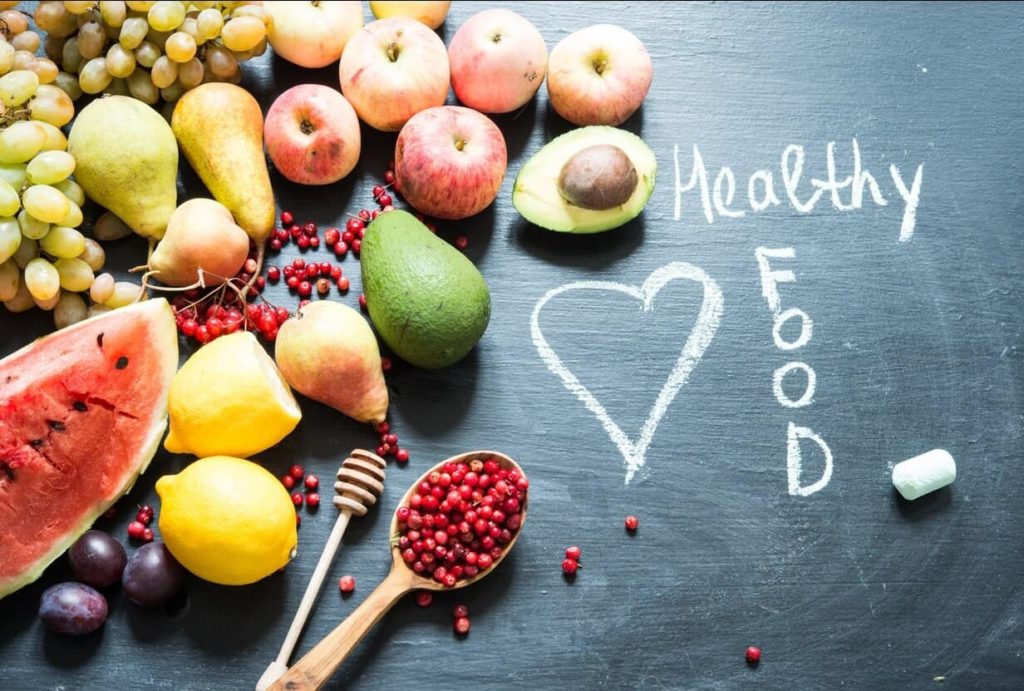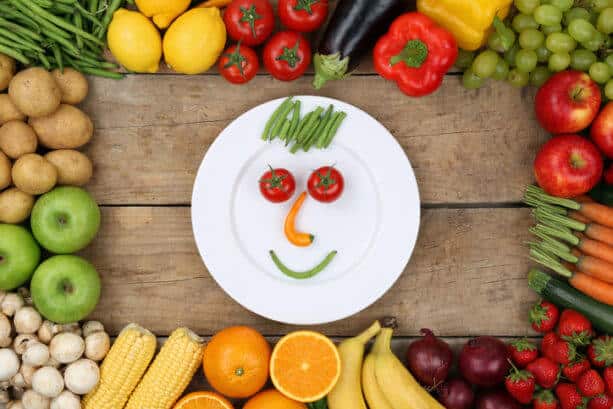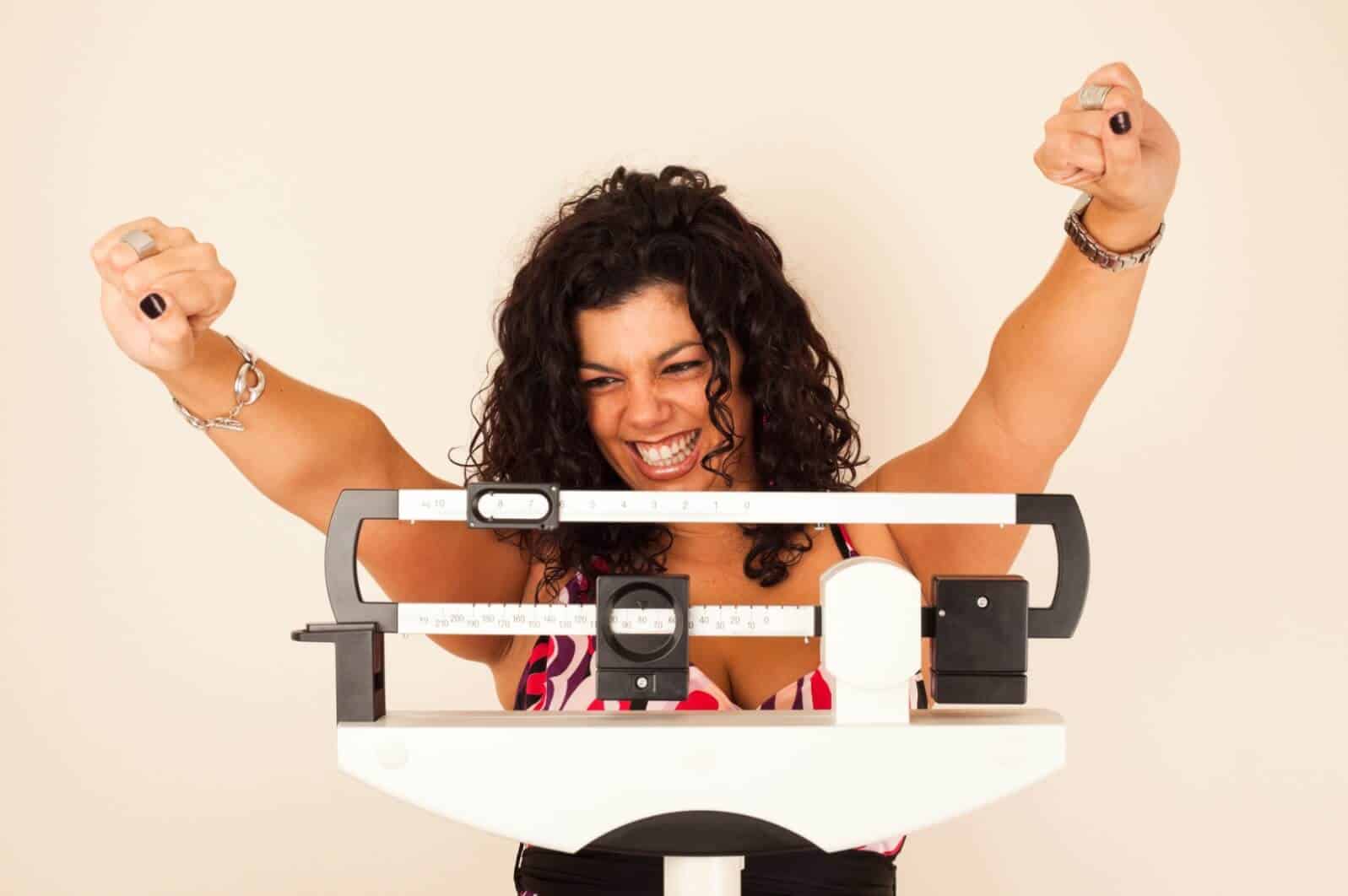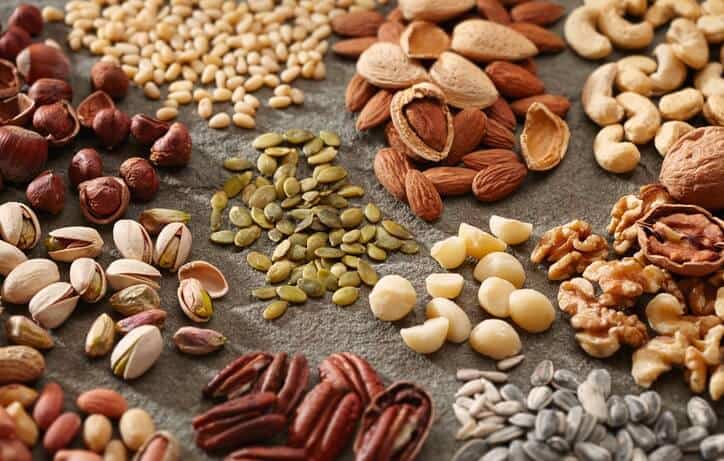The colorful smoothie bowls and mouth-watering meatless salads gracing your Instagram feed make a Vegan Diet look easy and fun.
Outside social media, a Vegan Diet can be just as glamorous – and healthy – as it appears.
You can fill your plate with vibrant, earthy creations – even if you don’t snap any photos.
As HarvardHealth claims, there are a number of reasons people decide to start a Vegan Diet.
Some advocate for animal rights, while others for the health benefits. A Vegan Diet promotes heart health and jumpstarts weight loss.
If you follow a Vegan Diet and hope to lose weight in the process; it’s not impossible. In fact, following a Vegan Diet focused on whole foods might be just what you need to get a running start toward your weight loss goals.
Below are the benefits of a Vegan Diet, how it could help you lose weight and how to build a healthy lifestyle around eating plant-based foods.
“Eating more plant-based foods and fewer animal-based foods is a great way to improve overall health. Plant foods tend to be lower in fat and calories and higher in fiber, which is associated with lower Body Mass Index.” states Kristie Middleton, Senior Food Policy Director for The Humane Society of the United States.
Vegan Diet – Is No Meat Safe and Healthy? Video Review
The Health Benefits of a Vegan Diet
According to Plos.org, the benefits associated with a Vegan Diet may result from lower intake of saturated fat.
“Enjoying a balance of whole plant foods provides us with a diverse spectrum of vitamins, minerals, and antioxidants. The foundational science-based nutrition research shows that these micronutrients support the body’s systems, and consuming a diet rich in nutrient-dense plant foods – reduces our risk of diet-related issues. A whole food plant-based diet supports a healthy body weight. Aside from weight management, a whole food plant-based diet can increase energy levels, aid digestion, boost immunity, and reduce inflammation.” states Danielle Levy R.H.N, N.C.
One study published in Translational Psychiatry found that plant-based diets may be able to improve cognitive health, while the American Journal of Clinical Nutrition found that a vegan diet could lead to reduced cholesterol levels.
You’ll probably lose weight. People who follow a Vegan Diet typically have lower body weight on average than those who eat diets high in animal products, Academy of Nutrition and Dietetics reports.
Now that you know the benefits of a Vegan Diet; what’s on a typical Vegan or Vegetarian menu?
The Bottom Line: Vegetarian and vegan diets reduce chronic risk, promote longevity, improve heart health, and could aid in weight loss. “Practicing mindful awareness in combination with a healthy plant-rich diet and lifestyle is a powerful strategy at promoting an overall state of health.” states Dr. Brewer from Claritas Mind Sciences.
Vegetarian Diet vs Vegan Diet
Some vegetarians also exclude eggs and other dairy products. Different variations of a Vegan Diet allow or exclude different combinations of selected food groups.
Traditional vegans avoid animal products – both the foods and products made from the animal.
Vegetarians don’t eat:
- Meat
- Poultry
- Fish and seafood
Vegans don’t eat:
- Meat
- Poultry
- Fish and seafood
- Eggs
- Dairy products
According to research found in The Permanente Journal, a focus should be put on plant-based diets instead of ones that are vegan or vegetarian-specific.
Vegan Diet and Weight Loss
If you’ve tried a long list of weight loss diets and haven’t gotten the results you wanted, you might be hesitant to try a Vegan Diet.
However, vegetarian diets are often more effective in reducing body weight than low-calorie diets, NCBI states.
According to NCBI, in a study comparing weight loss results among people who followed omnivorous, vegan, and vegetarian diets, those on the vegan diet lost the most body weight.
A Vegan Diet tends to be high in fiber. Following a high-fiber diet could also lead to weight loss, as Annals of Internal Medicine says.
As long as you’re consuming quality sources of protein, like vegetables and legumes, a vegetarian/vegan diet can keep weight gain at bay. According to NCBI, a high-protein diet might prevent you from gaining weight.
Diets high in added sugars can lead to weight gain. If you stick to a mostly whole food diet – eliminating processed foods high in refined sugars – your chances of losing weight on a vegetarian/vegan diet also increase, HarvardHealth reports.
The Bottom Line: Multiple studies have suggested following a vegetarian or vegan diet can lead to weight loss in some people. A high-fiber, high-protein diet low in processed foods may prevent weight gain. “Fiber rich foods such as legumes and green vegetables help you feel full for a longer period of time as the body needs much time to digest fiber. Fiber-packed foods are high in volume but low in calories, which makes them a perfect option for people who are looking to decrease calories but boost nutrition!” states Carolyn Scott, a Holistic Nutritionist and Plant-Based Chef.
How to Lose Weight on a Vegan Diet
Eat a vegetable with every meal. Vegetables are high in fiber and low in calories, which can help you eat less with greater benefit to your health.
Say no to ultra-processed foods. Most of the foods you should avoid to lose weight are part of traditional vegetarian/vegan diets, which discourage regular intake of processed food.
Get creative in the kitchen. You don’t have to eat beans and rice for every meal. A few simple ingredients can go a long way. Experiment with unfamiliar plant-based ingredients to learn what you like. You might even learn to love cooking!
Eat a variety of foods. Vary your meals and snacks from day to day so you don’t get bored. It’s tempting to veer away from your diet plan when you aren’t satisfied with the foods you are eating.
Never underestimate the power of herbs and spices. If you think a meal without meat is too bland, skip the salt and prepare your produce and other ingredients with herbs and spices to give them flavor.
The Bottom Line: A vegetarian or vegan diet doesn’t have to be bland. Fill up on high-fiber foods like vegetables, and try avoiding high-calorie, low-nutrition foods like processed junk food.
Healthy Eating on a Vegan Diet
Carbs
According to MayoClinic, carbohydrates (carbs) are your body’s primary energy source.
When you eat carbs, your body almost immediately converts them into glucose, which insulin sends to your cells to provide energy.
As Time reports, dietary fiber is a complex carb that will improve your digestion, and might even help you lose weight.
Best Plant Sources of Fiber
- Fruits
- Vegetables
- Nuts
- Seeds
- Beans
- Lentils
Protein
National Library of Medicine states, protein, another essential form of energy you can get from food, isn’t just for building muscle and repairing tissue. It also performs important functions in your body, like its roles in immunity and hormone regulation.
According to HarvardHealth, without milk, eggs, meat, poultry, and fish, it may seem impossible to eat enough protein (0.36 grams of protein per pound of body weight) every single day.
The reality is, plenty of people have survived without eating these foods before now. Many of them don’t even use powders or supplements to provide their bodies with adequate protein.
Best Plant Sources of Protein
- Quinoa
- Wild rice
- Steel-cut oats
- Nuts and seeds
- Chickpeas
- Beans
- Edamame
- Spinach
- Broccoli
Fat on a Vegan Diet
It’s a misconception that fat is bad for your health. Fat is actually just as important to have in your body as carbs and protein. It provides energy, helps to absorb some vitamins and minerals, and even plays a key role in blood clotting, HarvardHealth says.
While it’s true that too much fat can pose numerous health risks in the long-term, adopting a low-fat diet isn’t the best solution.
In fact, low-fat diets are typically less effective in helping people lose weight than other diets, TheLancet claims.
There are three types of fat you can consume as part of a Vegan Diet:
- Saturated fat
- Unsaturated fat
- Trans fat
Animal products contain mostly saturated fats, the less healthy of the two. Plant sources of fat are unsaturated, healthier than saturated fats. You will also find healthy fats in seafood and fish.
According to MayoClinic, trans fats added to foods during manufacturing are harmful to the body. The FDA is making sure manufacturers remove them from processed foods.
Popular foods high in saturated fat, such as cheese, bacon, and butter, are typically foods you want to avoid on a Vegan Diet, HarvardHealth reports.
Incorporating a healthy amount of “good” fat into your Vegan Diet can help you stay energized and nourished. Don’t hesitate to add a little olive oil-based dressing to your salad – it’s good for you.
Best Plant Sources of Fat
- Olive oil
- Peas
- Avocados
- Seeds
- Tahini
- Tempeh
- Tofu
- Nuts
- Nut butters
- Chickpeas
- Hummus
- Olives
Many foods high in fiber, protein, and healthy fats and low in saturated fats are regular staples in a Vegan Diet. Eating a variety of nutrients at each meal can ensure you’re getting all the nutrition you need to stay healthy.
What Users Are Saying
“I’ve been on this diet for a few days now and my skin has already changed a ton. I have really persistent acne at 23 that has been raging since i was a teenager. Usually my face feels like a constant oil faucet. But a few days into this vegan diet and my skin feels totally different. Not oily at all. It’s crazy.”
“My new girlfriend who is a super health nut suggested I try doing this strict vegan diet for 21 days. Since I am 30 lbs overweight and not in the best of shape I decided I would give it a shot. I have only been on it a week now, but have already noticed changes in my body. I would get frequent heartburn and suspected I had GERD. This past week it’s like it completely disappeared! Haven’t had bad heartburn once. Also another thing I am curious about is that passing stool has gone up from once a day to three times a day now.”
The Bottom Line on a Vegan Diet
Following a Vegan Diet without knowing the right foods to eat can make long-term weight loss difficult. Sticking with a mostly plant-based diet can help you lose weight, and help you live a longer, healthier life. “More and more people are aware of the health benefits of following a plant-based diet, especially thanks to films like Forks Over Knives and What the Health?
Making the switch can be overwhelming, though, so people look to us to provide textures and flavors they’re familiar with but without the harmful effects of consuming animal meat.” states Aubry Walch, from The Herbivorous Butcher.
Vegan Diet – Is No Meat Safe and Healthy? Questions & Answers
It is difficult to determine which is healthier between a vegan and vegetarian diet as it ultimately depends on the individual. Generally speaking, a vegan diet tends to be more restrictive but offers many health benefits, while a vegetarian diet can still provide important nutrients while allowing some animal products like eggs and dairy. Ultimately, the healthiest option will depend on the individual’s lifestyle and goals.
Article Sources
- https://www.health.harvard.edu/heart-health/halt-heart-disease-with-a-plant-based-oil-free-diet-
- http://kristiemiddleton.com/
- http://journals.plos.org/plosone/article?id=10.1371/journal.pone.0170664
- https://daniellelevynutrition.com/
- https://www.ncbi.nlm.nih.gov/pmc/articles/PMC6742661/
- https://pubmed.ncbi.nlm.nih.gov/19279075/
- http://jandonline.org/article/S2212-2672(14)01763-8/abstract
- https://claritasmind.com/
- https://www.ncbi.nlm.nih.gov/pmc/articles/PMC3662288/
- https://www.ncbi.nlm.nih.gov/pubmed/28604251
- https://www.ncbi.nlm.nih.gov/pubmed/25592014
- http://annals.org/aim/article/2118594/single-component-versus-multicomponent-dietary-goals-metabolic-syndrome-randomized-trial
- https://www.ncbi.nlm.nih.gov/pubmed/25926512
- https://www.hsph.harvard.edu/obesity-prevention-source/obesity-causes/diet-and-weight/#references
- https://carolynscotthamilton.com/
- http://www.mayoclinic.org/healthy-lifestyle/nutrition-and-healthy-eating/in-depth/carbohydrates/art-20045705
- http://time.com/3709904/fiber-weight-loss/
- https://ghr.nlm.nih.gov/primer/howgeneswork/protein
- https://www.health.harvard.edu/blog/how-much-protein-do-you-need-every-day-201506188096
- https://www.health.harvard.edu/staying-healthy/the-truth-about-fats-bad-and-good
- http://www.thelancet.com/journals/landia/article/PIIS2213-8587%2815%2900367-8/abstract
- http://www.mayoclinic.org/diseases-conditions/high-blood-cholesterol/in-depth/trans-fat/art-20046114
- https://www.hsph.harvard.edu/nutritionsource/top-food-sources-of-saturated-fat-in-the-us/
- https://www.reddit.com/r/vegan/comments/7q53yn/recently_went_on_a_vegan_diet_and_it_has/dsmpsff/
- https://www.reddit.com/r/vegan/comments/7q53yn/recently_went_on_a_vegan_diet_and_it_has/
- https://www.theherbivorousbutcher.com/
Partner with Us!
Looking to promote your weight-loss products or services?
Our platform reaches a dedicated audience actively seeking the best solutions. Contact us to explore advertising opportunities and grow your brand with us.
Get in Touch







